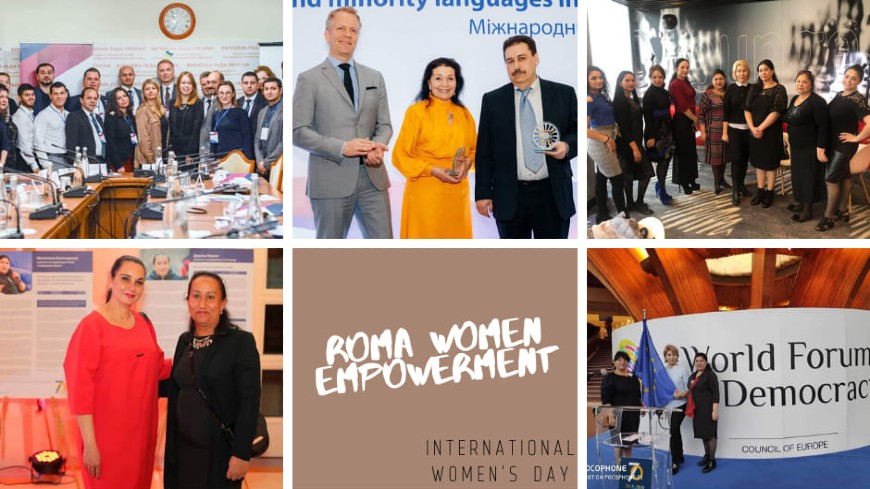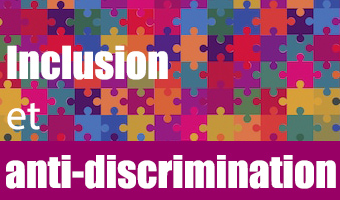A large number of Roma and Traveller women and girls continue to face multiple discrimination in various areas, ranging from health to employment and education, amongst others. They also have limited opportunities to influence the policies that most concern them.
Although data broken down by ethnic origin and gender is not available in most member States, the European Union Agency for Fundamental Rights (FRA) provides a detailed picture of the unfavourable situation of Roma women (particularly in the EU-MIDIS II survey). Roma and Traveller women appear to be disadvantaged in all sectors of society, not only compared to the general population but also compared to the men of their own community. Therefore, they appear as one of the most vulnerable groups within and across the European states.
The Council of Europe (CoE) is convinced that empowering Roma and Traveller women and girls is vital to building fair, inclusive, prosperous Europe. That is why taking the necessary measures to improve the situation of Roma women and girls and promote their empowerment is not only an obligation for the institutions and member States of the CoE but is also a test of the quality of the democratic structures and the rule of law.
For many years, the CoE has been supporting the implementation of international human rights standards and developmental policies. In addition, it is providing member States with policy guidelines and assistance not only to foster Roma and Traveller inclusion but also to advance the protection and promotion of gender equality.
In this context,the CoEendorsedthe Strategic Action Plan on Roma and Traveller Inclusion (2020-2025)while drawing particular attention to the need for consistent implementation and to the insufficient progress achieved.
Targeted actions
The EU/Council of Europe Joint Programme “Access to Justice of Roma and Traveller women (JUSTROM)” empower Roma women and girls to fight discrimination. (in co-operation with equality bodies and national human rights institutions, legal professionals, local authorities, social services, academia, the media and civil society organisations.) Through JUSTROM, legal and other relevant professionals have been trained to address multiple discrimination and improve access to justice of Roma women. The training programme for Roma women supported the empowerment of Roma women through increasing their awareness about discrimination, complaint mechanisms, the justice system and human rights institutions/equality bodies.
Other EU/Council of Europe Joint Programmes such as ROMACT and ROMACTED working together with local Roma communities and local authorities devote particular attention to the participation and empowerment of Roma women in the community action groups and in the activities carried at local level in over 110 municipalities in Europe. Through the INSCHOOL joint project dedicated to quality inclusive education, particular attention is paid to the girls and their personal development in view of creating conditions for successful completion of education.
The International Roma Women’s Conferences, organised in close collaboration with thehosting member State provides an opportunity for anin-depth policy dialogue with the representatives of Roma women and various politicians, national authorities, international organisationsacademia about issues affecting their empowerment and prosperity. The recommendations stemming from these conferences support and feed into national and international policy development and planning.
The programme and objectives of the conferences are set in close co-operation with Roma and Traveller women’s organisations.
Roma women have very few opportunities to shape and evaluate policies that can influence their lives. With a view of changing this, the Roma Political Schools, established in 2018, provide training and mentoring to Roma citizens with the aim of bringing them closer to local, national and European decision-making bodies, including Roma who intend to stand for election at local, national or European level. Special attention is paid to Roma women and youth who are interested in actively participating in public or political life in their respective municipalities or countries a selection criterion being half of the participants being women.
The Roma and Travellers team has also regularly organised Study visits for Roma and Traveller women to improve their knowledge on institutions and monitoring mechanisms of the Council of Europe and strengthen their daily advocacy work at national level.
The short film “To be Equal – Untold Stories” follows 4 strong and dedicated Ukrainian Roma women in their journey towards empowerment and a voice that will be heard.

Prepared by V. Poppe
Edited by R.Rustem/ M.Andrade/ A.Ailincai




